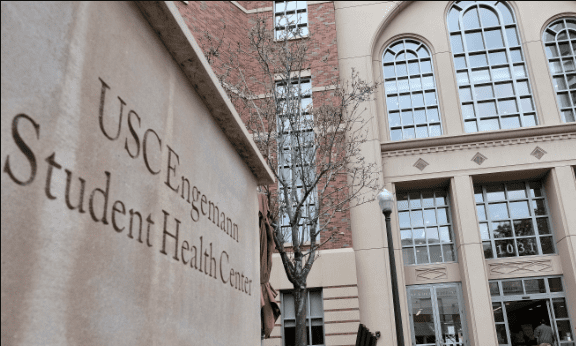C.W. Park USC Lawsuit Understanding The Implications and Details

The c.w. Park usc lawsuit has garnered significant attention in recent times, reflecting the ongoing legal and academic challenges within higher education institutions. This article aims to dissect the intricacies of the lawsuit involving C.W. Park and the University of Southern California (USC), exploring the background, legal aspects, and broader implications for academia.
Background of the C.W. Park USC Lawsuit
The C.W. Park Usc lawsuit revolves around Dr. C.W. Park, a distinguished professor at the University of Southern California’s Marshall School of Business. Dr. Park, renowned for his contributions to marketing and consumer behavior, found himself at the center of a contentious legal battle. The lawsuit was initiated over claims of wrongful termination, discrimination, and academic freedom violations.
Dr. Park’s allegations suggest that his dismissal was not based on performance or conduct but rather on discriminatory practices and retaliation for his outspoken stance on certain university policies. This case has highlighted the potential conflicts between academic freedom and administrative decisions within prestigious institutions like USC.
Legal Aspects of the C.W. Park USC Lawsuit
Discrimination Claims
A core component of the C.W. Park Usc lawsuit is the allegation of discrimination. Dr. Park, of Korean descent, asserts that his termination was influenced by racial bias. He claims that the university’s actions were discriminatory, pointing to a pattern of behavior that marginalized him and other minority faculty members. The legal framework for this aspect of the lawsuit draws on federal and state anti-discrimination laws, including Title VII of the Civil Rights Act of 1964.
Wrongful Termination
The lawsuit also addresses wrongful termination, with Dr. Park arguing that his firing was unjust and without proper cause. He contends that his termination violated both his contract and USC’s internal policies. In legal terms, wrongful termination cases examine whether the employer adhered to established procedures and whether the dismissal was for legitimate reasons.
Academic Freedom
Another significant element in the c.w. Park usc lawsuit is the issue of academic freedom. Dr. Park claims that his termination was in retaliation for his vocal criticism of certain university practices and policies. Academic freedom is a cornerstone of higher education, allowing faculty members to express ideas and critique institutional practices without fear of reprisal. This case raises important questions about the balance between institutional control and the protection of academic discourse.
Also read: Celebrities with Buffalo Hump Understanding The Condition and Its Impact
Broader Implications of the C.W. Park USC Lawsuit
Impact on Academic Institutions
The outcome of the C.W. Park USC lawsuit could set a precedent for how universities handle similar cases in the future. A ruling in favor of Dr. Park might encourage other faculty members to speak out against perceived injustices without fear of retaliation. Conversely, a decision favoring USC could reinforce administrative authority, potentially stifling academic dissent.
Legal Precedents
This lawsuit has the potential to influence legal standards regarding wrongful termination and discrimination within academic settings. Courts may use this case to further define the boundaries of academic freedom and the protections available to university employees under anti-discrimination laws.
Institutional Reforms
The c.w. Park usc lawsuit has already prompted discussions about potential reforms within USC and other universities. Institutions may need to revisit their policies on faculty termination, ensuring they are transparent and equitable. Additionally, universities might implement more robust mechanisms to address and prevent discrimination, fostering a more inclusive environment.
FAQs
What is the C.W. Park USC lawsuit about?
The C.W. Park USC lawsuit involves allegations of wrongful termination, discrimination, and violations of academic freedom by Dr. C.W. Park, a former professor at USC’s Marshall School of Business. Dr. Park claims he was unjustly dismissed due to racial bias and his outspoken criticism of university policies.
Why is the C.W. Park USC lawsuit significant?
This lawsuit is significant because it addresses crucial issues within academia, including discrimination, wrongful termination, and academic freedom. The case could set legal precedents and prompt institutional reforms at USC and potentially other universities.
What are the potential outcomes of the C.W. Park USC Lawsuit?
Potential outcomes include a court ruling in favor of Dr. Park, which could lead to his reinstatement and changes in university policies. Alternatively, a decision favoring USC could reinforce current administrative practices but may also spark further debate on academic freedom and discrimination.
How does the c.w. Park usc lawsuit affect other faculty members?
The lawsuit highlights the challenges faculty members may face when addressing discrimination and advocating for academic freedom. A favorable outcome for Dr. Park could empower other faculty members to speak out against injustices, while a decision for USC might underscore the need for clearer policies and protections.
Conclusion
The c.w. park usc lawsuit encapsulates a critical confrontation between individual rights and institutional authority within academia. As this case unfolds, it will undoubtedly have far-reaching implications for universities, faculty members, and the broader educational landscape. Whether it leads to significant legal and institutional changes or reinforces the status quo, the c.w. park usc lawsuit remains a pivotal moment in the ongoing dialogue about justice and freedom in higher education.
